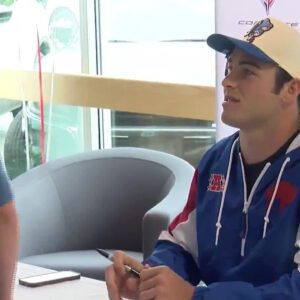Mercury Morris, a running back and kick returner on the Miami Dolphins’ undefeated Super Bowl team in 1972, has died, according to a member of his family. He was 77.

The Miami Herald has confirmed Morris’ death through the Dolphins.
“It is with profound sadness that we announce the passing of Eugene ‘Mercury’ Morris, legendary Miami Dolphins running back and cherished member of the NFL family, at the age of 77,” his son GhostWridah, a Miami-based musical artist born Troy-Jeffery Morris, posted on X. “Known for his electrifying speed and dynamic play, Mercury was a cornerstone of the Dolphins’ historic 1972 undefeated season and a two-time Super Bowl champion. His talent and passion left an indelible mark on the sport, and his three Pro Bowl selections only solidified his place among football’s greats.
“Beyond the field, Mercury was a dedicated father, a loving brother, a loyal friend, and a pillar in the community. His presence extended far beyond football, as he touched the lives of many throughout his time in Miami.”

Morris was a third-round pick out of West Texas A&M, and he played for the Dolphins from 1969-75, helping form what later came to be known as the “perfect backfield” alongside Larry Csonka and Jim Kiick.
Morris was a three-time Pro Bowler and a two-time Super Bowl champion with the Dolphins, also including the team’s repeat championship in 1973.
Morris ran for exactly 1,000 yards and scored a league-best 12 rushing touchdowns during the 1972 regular season as the Dolphins finished 14-0 before winning three more postseason games for the only undefeated season in NFL history.


Csonka also ran for 1,117 yards that year, making Miami the first team ever to boast two 1,000-yard rushers in the same season.
“It’s a very sad day for me and our Dolphin family. #NeverForget #22 #72Dolphins #Perfectville,” Csonka wrote on X.
Morris was traded to the Chargers in 1976 and played one season in San Diego before retiring.
In 1982, the Pittsburgh native was convicted on a drug trafficking charge that later was overturned, but he spent more than three years in prison on a plea-bargain agreement. He later served as a motivational speaker discussing his time in prison.





